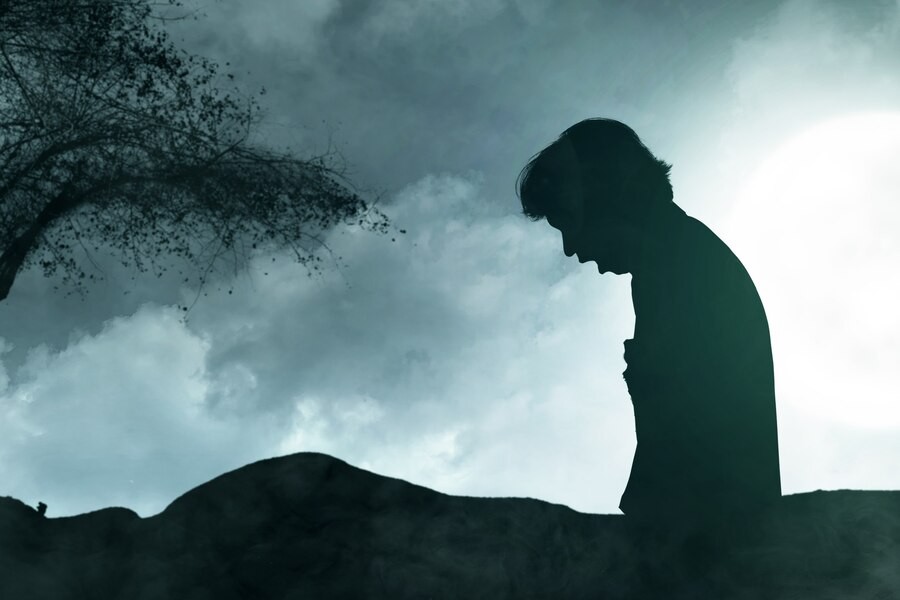Crowds, public transportation, bridges, enclosed spaces like movie theaters, and large open areas can all cause extreme fear and anxiety in some people. The term "agoraphobia" refers to this fear and anxiety.
Individuals who suffer from agoraphobia may experience panic attacks, which can cause them to lose control in addition to feeling scared or anxious in particular situations or places.
What causes agoraphobia?
Researchers are unsure of the precise trigger that leads to agoraphobia in humans. However, there are two main causes of agoraphobia:
Biological factors
When faced with stressful and possibly dangerous situations, a fight-or-flight response comes naturally. Your body releases hormones like adrenaline in response to your feelings of fear and anxiety, which in turn causes your heart rate to rise, your breathing to quicken, your blood flow to your muscles to increase, and your level of awareness to rise.
This fight-or-flight reaction can become overwhelming for agoraphobics, particularly in situations or locations that are not truly dangerous. They experience physical symptoms that result in a strong fear of losing control or difficulty fleeing.
A person may develop agoraphobia due to biological reasons such as reactivity of the autonomic nervous system, chemical imbalances in the brain, and heredity.
Psychological factors
Apart from biological factors, psychological factors also play an important role in the development of agoraphobia. The psychological factors include:
Traumatic childhood experiences
Traumatic experiences in childhood, such as the death of a parent or sexual abuse, can increase the risk of developing agoraphobia later in life. Childhood trauma can cause ongoing insecurity and anxiety, which can have an impact on one's mental health as an adult.
Stressful events
Stressful life events like losing a job, losing a loved one, or going through a divorce can make people more anxious and increase their chance of developing agoraphobia or other phobias. This could happen as a result of the body reacting to the stress.
History of mental illness
A person is more likely to develop agoraphobia if they have a history of mental illnesses like depression, anorexia, or bulimia. Other mental disorders can worsen the symptoms of agoraphobia and make the condition harder to manage.
Substance and drug abuse
Alcohol or drug abuse can also increase the risk of developing agoraphobia. These drugs may alter the chemical composition of the brain, thereby elevating anxiety and agoraphobia symptoms.
Unhealthy relationships
Being in an unhealthy and unhappy relationship can also be a psychological trigger for developing agoraphobia. An environment that is emotionally damaging or unsupportive will make someone feel more insecure and anxious.
If you suspect any signs of agoraphobia, such as a fast heartbeat, shortness of breath, dizziness, or cold sweats, when you are in a certain situation or place, you should get medical help and see a doctor. Your doctor can help you find the cause and recommend the right treatment for your condition.
If you need medical advice or consultation, you can either visit a doctor or make use of the consultation features that are available in the Ai Care application by downloading the Ai Care application from the App Store or Play Store.
Looking for more information about other diseases? Click here!
- Sean Edbert Lim, MBBS
Mayo Clinic (2023). Agoraphobia. Available from: https://www.mayoclinic.org/diseases-conditions/agoraphobia/symptoms-causes/syc-20355987
Cleveland Clinic (2023). Agoraphobia. Available from: https://my.clevelandclinic.org/health/diseases/15769-agoraphobia
NHS UK (2022). Causes: agoraphobia. Available from: https://www.nhs.uk/mental-health/conditions/agoraphobia/causes/
Harvard Medical School (2024). Understanding the stress response. Available from: https://www.health.harvard.edu/staying-healthy/understanding-the-stress-response











